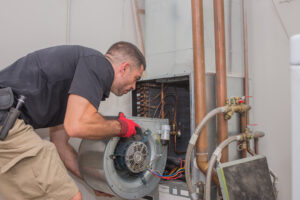Solutions When Your AC No Longer Blowing Cold Air In Houston
One of the worst things that can happen is for your air conditioner to stop working or malfunction during the hot summer months. However, there are a few ways that you can figure out what is wrong with your AC and why it is not emitting cold air. Of course, the best course of action is to hire an HVAC professional for diagnosis and repair. However, it is possible to find out the main issue on your own and let your contractor know as it can greatly help. This will ensure that your air conditioner is fixed as soon as possible since you definitely don’t want to be without a functioning air condition in sweltering conditions as it can be a health hazard.
There are many possible reasons why your AC unit has stopped functioning properly and some of them include:
- The thermostat is not functioning properly
- There is a build-up of ice
- Refrigerant levels are too low
- Issues with the power supply
- The filter is clogged
- The compressor is dirty
- The drain is dirty or clogged
- Issues with the airflow switch
However, even with problems like these, there is always hope. It is possible to fix some of these issues, but almost all of them can be quickly and easily fixed by an HVAC technician.
Power Supply Issues
Even though this may seem like an overly simplistic fix, if your air conditioner is not blowing any air or little air, then one of the first things you should check is if it is properly plugged into the power outlet. You should also check the power cord to ensure that it is still in good condition. Once it is okay, then there is the possibility that there is a problem with the electrical panel. The majority of air conditioners require a lot of electricity and as a result, it is possible that your air conditioner has caused a breaker to trip or even blow a fuse. There are also some air conditioners that have their own overload switch, so you should make sure to thoroughly check it out.
Malfunctioning Thermostat
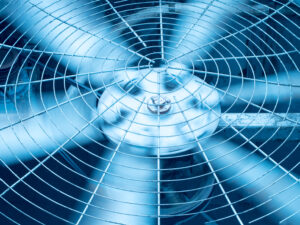 Once you have thoroughly checked the power and that is fine, then the next thing you should check is the thermostat. It is possible that it is not properly set to the right temperature and you can check by adjusting the thermostat so that it is at the lowest temperature. It is possible that this can cause your unit to function and blow cold air once again. Additionally, you should check out all of the wires inside of the thermostat and make sure they are all connected.
Once you have thoroughly checked the power and that is fine, then the next thing you should check is the thermostat. It is possible that it is not properly set to the right temperature and you can check by adjusting the thermostat so that it is at the lowest temperature. It is possible that this can cause your unit to function and blow cold air once again. Additionally, you should check out all of the wires inside of the thermostat and make sure they are all connected.
Clogged Filter
Next, another possible reason for having a malfunctioning unit is that your filter is clogged. There are actually some air condition models that actually shut down if the filter becomes clogged. This is done so that overheating does not occur and cause motor damage. Also, if the filter is clogged, then the unit would not allow cool air to flow properly. So, if you have a clogged filter, you should clean it or even replace it.
Accumulation Of Ice
There are many reasons why ice can build up and accumulate in your units such as having low refrigerant levels or dirty filters or coils. So, one of the first things you should do is clean the coils and filters and then check to see if your problem is fixed. If there is a lot of ice, you will have to melt this ice by allowing the unit to run on the fan function. If at this point, the air condition unit is still not blowing cool air, then it may be highly possible that your unit is low on refrigerant.
Clogged Drainage
It is a fact that air condition units actually take out water or moisture from the air in the enclosed space. This waster then drains down through a drain pipe or hose and it is possible for this drain to become clogged. This feature ensures that water does not leak inside of your home or in the unit which can cause a great deal of damage. So, you should check to see if the drain is blocked with algae and you can clean it with a light bleach solution. This drain piping can also be replaced if necessary.
Dirt In The Compressor
One of the things you should do on a regular basis to maintain your air conditioner is to clean the space around your compressor. Over time, there will be a build-up of materials such as dirt, dust, leaves etc, which can greatly hamper your air conditioner from working as it should. It is possible for you to clean the compressor yourself or you can hire an HVAC technician to clean it for you as this will ensure that it is thoroughly cleaned. However, you should always make sure that the air conditioner is powered off before you start cleaning.
Airflow Switch Problems
When the drainpipe has too much water and becomes backed up, there are actually some air handlers that have an integrated safety float which automatically shuts off. So, if you have this issue, you should attempt to locate the tripped switch and then reset it once the drainpipe’s condenser is thoroughly cleaned.
Refrigerant Levels Are Too Low
Despite what you may hear, refrigerant doesn’t naturally deplete overtime or go bad. One typical reason why an air conditioner may stop blowing cold air is if there is a refrigerant leak. When there is a leak, this can cause the refrigerant levels to decrease slowly over time and you should always check the lines regularly to find these leaks. Once it has been found that the levels are low, then the system should be recharged so that the unit can function well, once again. However, it is best that you hire a professional to do this since handling refrigerant is dangerous due to the chemicals involved and most cooling systems are generally quite complex.
If you have an older unit, then you should think about updating it. By upgrading, you can get a system that is more reliable and it is quite a good investment, especially if your current unit is over 10 years old, is expensive to fix and if you’re having problems with it on a regular basis.
Basically, if you can prevent some issues, it will be worth it in the long run. It is important that you have an HVAC technician inspect your unit on a yearly basis so that you can ensure it is well maintained and you avoid typical problems and the loss of function of your unit.
This technician will ensure that your unit is in great condition and will ensure that it is always compliant with the building codes in your state. So, if you have any doubt, you should definitely hire a professional as opposed to trying to figure out the problem yourself, which can cause even more damages.
If you’re looking for a well known and reliable AC service, then you should check out the AC Man of Houston since we have the best technicians to solve any AC problem as well as maintain your unit. We can provide services for any model or type of AC units and you can definitely depend on us. However, do note that we don’t service window units. Our company is fully certified and is truly the best AC company in Houston. So, be sure to contact us or give us a call and we will take care of any AC problem you have and ensure that your home is always cool and comfortable. Do not forget to check out our blog for more related content!
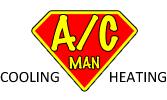
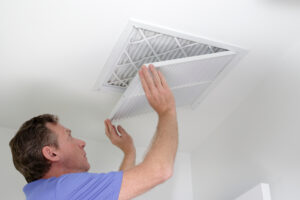 The majority of homeowners’ insurance policies will only cover the damages that your AC unit has sustained due to a “covered peril” which will be listed in the policy. Depending on what type of
The majority of homeowners’ insurance policies will only cover the damages that your AC unit has sustained due to a “covered peril” which will be listed in the policy. Depending on what type of 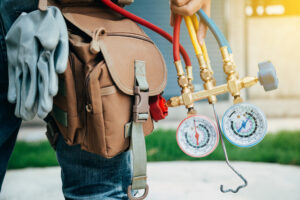 A failing capacitor is a very common culprit behind air conditioner malfunctions. Fortunately, if capacitor problems are caught in time, then a
A failing capacitor is a very common culprit behind air conditioner malfunctions. Fortunately, if capacitor problems are caught in time, then a 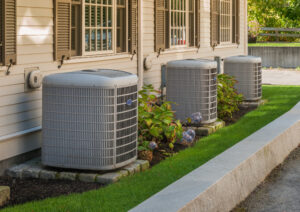 Examining the thermostat: Calibrate the thermostat, and also make sure that it is correctly installed, and located away from any heat sources such as light bulbs or household appliances that give off heat.
Examining the thermostat: Calibrate the thermostat, and also make sure that it is correctly installed, and located away from any heat sources such as light bulbs or household appliances that give off heat.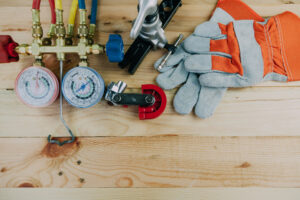 1. Scheduled Maintenance
1. Scheduled Maintenance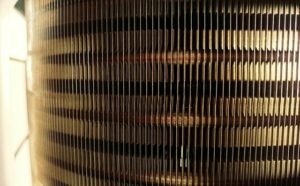 The price of
The price of 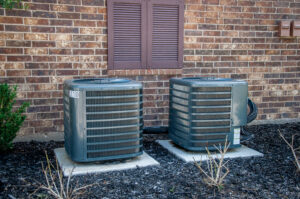 Your heating and
Your heating and 